AS THE British high commissioner to Singapore, Nikesh Mehta oozes confidence – using diplomacy skills to build relationships between the two countries through the likes of royalty, politicians, entrepreneurs and businesses.
It was a different story, however, at the start of his career when he admits his mantra was to “conform and survive”.
“When I joined the diplomatic service, I honestly knew little of what to expect,” Mehta told Eastern Eye. “Those first few months were really difficult. I was intimidated by the building, the artwork, the way that people dressed and the way that they spoke – it was quite alien to me.
“I certainly didn’t see people at the top levels of the office that reflected my heritage, and those first few months, maybe even years, were about survival and conforming to succeed.”
Mehta found it difficult to be his “authentic self” and revealed that he used his first pay cheque to buy himself a new wardrobe because he thought he needed to “dress like a diplomat”, which he thought was to wear pinstripe suits, carry long umbrellas and read the Financial Times.
“I suspect, for many people who go into these careers that are not known to our communities, the initial reaction is to conform because you can survive by conforming, not by staying true to your identity.”
Mehta soon realised his diversity was one of his strengths at the UK’s Foreign, Commonwealth & Development Office (FCDO). After joining in 2002, he completed a year in London before volunteering to go and work in the southern provinces of Iraq just after the start of the war.
Mehta at an official event in SingaporeAs a political officer, he worked very closely with the US and the British military, to develop a political system post Saddam Hussein that would enable participation from all parts of Iraqi society.
“It was there, and then subsequently my first substantive post into Uganda, that I really realised that my diversity, the difference that I bring, the way that I look, the cultural heritage that we have, was a bonus,” he said.
“It opened doors that might otherwise have been closed, and it enabled conversations that were slightly different to the ones I think others we were having.”
In Uganda, he reported on the 20-year conflict between the Ugandan government and the Lord’s Resistance Army, and the ensuing humanitarian crisis.
He also worked to build Uganda’s relationships with its neighbours, primarily Kenya, Rwanda and Democratic Republic of the Congo (DRC).
It was a special placement for Mehta as his mother, a Ugandan Asian, was expelled from the country by the dictator Idi Amin’s forces in the early 1970s. His father came to the UK from Kenya.
“When I told my mum I was going to Uganda, there was just joy,” he said. “Setting aside the Idi Amin thing, she had such a strong affinity for the for the country. It is the most beautiful country you can imagine, with wonderful people.
“My mum felt right from the outset that she wanted to return to the country to visit. She actually came five times when I was there and my dad came eight times – they just loved Uganda.”
Mehta’s grandmother, who was in her 80s at the time, also came to visit and he took her to the village that she had grown up in on the Rwanda, Congo, DRC border.
“I think, for them, it was the closure of an important circle, a chance to return and maybe put to bed that chapter in their lives.” Mehta is married with two children.
He describes his time in Malaysia, where he was the political counsellor from 2012 to 2015, as the most “formative experience” of his life. “There were two airplane disasters, MH370 (Malaysia Airlines Flight 370) and MH17 (Malaysia Airlines Flight 17) that I was involved in,” added Mehta.
“We had two visits by David Cameron, who was the prime minister at that time – the first visit by a British prime minister to Malaysia for many, many years. And we had the unbelievable visit by the then Duke and Duchess of Cambridge, now, Prince and Princess of Wales. I helped to organise their four-day programme and realise the magic of our royalty overseas.”
During his time in Malaysia, the British High Commissioner, Simon Featherstone, died midway through his term.
“It was a total rollercoaster of emotions, but I learned a lot about leadership in that period, and again, a really good place in which to see the impact of our diversity. Malaysia has a big Indian population, but I think just being of an ethnic minority background, it opened a range of doors for me,” said Mehta.
He admits he also had some difficult experiences in the country as a diplomat of colour. “I think any diplomat will have experiences and challenges because of their diversity,” he said.
“For me, there were times when I was refused entry into events and told to wait with the driver because people just assume that the brown person in the car must be the one that’s driving the vehicle, not the senior diplomat there.
“Even when challenged, they would say, ‘I’ve told you go and wait with the drivers, why do you keep coming back?’.
It’s only when you pull out your diplomatic ID that the approach softens. “Then there’s that feeling when you walk into the room and they look around waiting for the white man to show up because their expectation is the British political counsellor must be a certain type and that’s difficult.”
These types of incidents have occurred throughout his career, added Mehta.
During his time as the deputy ambassador at the British embassy in South Korea, where he served from 2018 to 2022, Mehta encountered another incident. At an event where the Indian flag was being raised, he was mistakenly introduced as the Indian deputy ambassador. “I realised that at some point I’ve to stop this and explain that I’m actually representing the UK,” he laughs.
“I found the best thing to do was to wear a lapel pin with the Union Jack and the flag of the country you’re in. It’s easy then for everyone to realise that you’re not the Indian diplomat, you’re the other British one.”
Mehta with Singapore graduates from the UK’s Joint Service Command and Staff CollegeMehta spent three years at home as the deputy director at the Government Communications Headquarters (GCHQ) working on international cyber-security, before he took up his first assignment as a high commissioner – in Singapore.
He started the role in July and will next year oversee celebrations of 60 years since the establishment of diplomatic ties between the two countries.
“The head of mission role is slightly different because you’re preparing to represent all aspects of the UK’s relationship with Singapore,” said Mehta.
“I’ve spent a lot of time understanding the history of the UK-Singapore relationship, starting with research in the National Archives. This spans from the period when the Straits Settlements became a crown colony in 1867 to Singapore’s independence, along with the various visits made by our royal family.”
Latest available figures show that Singapore is one of the UK’s closest partners with a trade relationship worth £21 billion.
Of all the UK businesses that operate in Asia today, 70 per cent of them have a regional hub in Singapore, with more than 6,000 British companies present and counting.
Singaporean entities have a total of £297 billion invested in the UK.
In 2022, the UK and Singapore signed a first-of-its-kind Digital Economy Agreement to help businesses from both sides seize new trade opportunities.
Last year, then UK prime minister Rishi Sunak and then Singapore prime minister Lee Hsien Loong met on the sidelines of the G20 summit in India, during which they issued a joint declaration to elevate Singapore-UK relations to a strategic partnership.
“I’ve always wanted to do a high commissioner role and I really wanted to go to Singapore. It was always the dream to go there. I applied four times to do a role in Singapore and never been successful. And now I’ve got the top role, which is just a blessing, a privilege and an honour,” added Mehta.
“There are so many things I think we can work on together. Both countries are world leaders in emerging technology, whether that’s artificial intelligence or quantum or engineering biology, to finding ways in which we can develop the global regulatory framework for these emerging technologies.
“We can work together to create ecosystems for start-ups and scale-ups in both countries to work in the other. And for the UK, establishing a presence in the Singapore unlocks the wider region (Asia) as well. I’d love to be a part of that and use my cyber security credentials to help do that.”
Though he has an unenviable schedule that sees, in some weeks, over 300 people coming through the high commission for receptions, dinners or events, he still finds the time to be a champion for greater diversity in UK diplomacy.
“I feel a real responsibility to lift people as I as I climb. I’ve been lucky to have the support of lots of good people from ethnic minority backgrounds and others that have helped me succeed,” he said.
“I feel a deep duty to make sure that I’m doing the same, creating a path that other people can follow. It’s important both for the intelligence services and the diplomatic service.
“Diversity is not just a moral imperative, it’s not just about reflecting the streets that we that we walk on, but it’s about talent. You need the most talented people working in the civil service and trying to make society better and provide better services to our citizens.
“You don’t do that by just recruiting from one strand of society. You do it by trying to attract the very best and getting them to work together.”






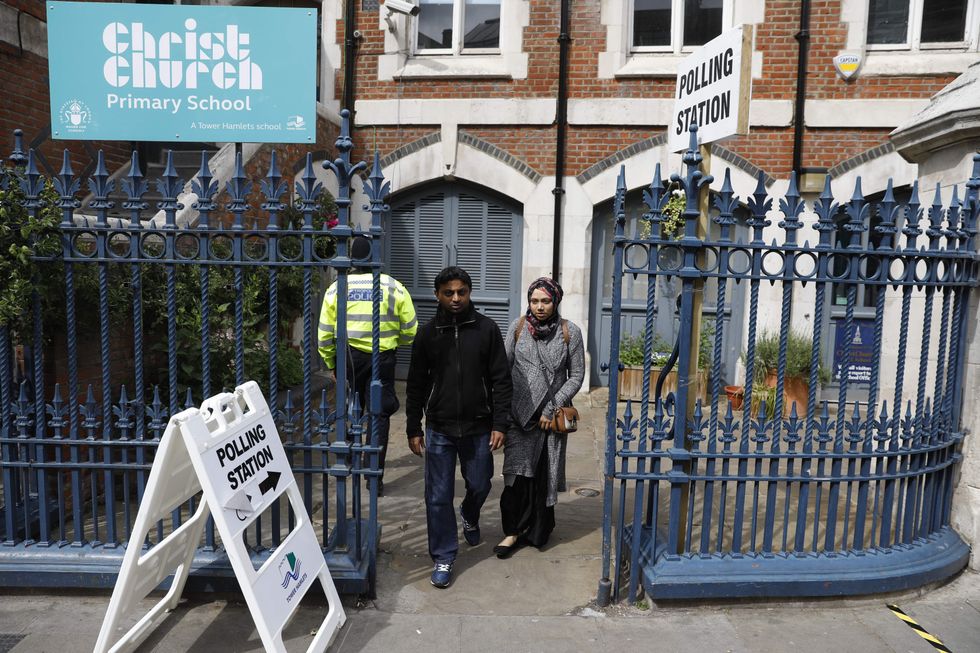 Efforts are underway to modernise voting systems
Efforts are underway to modernise voting systems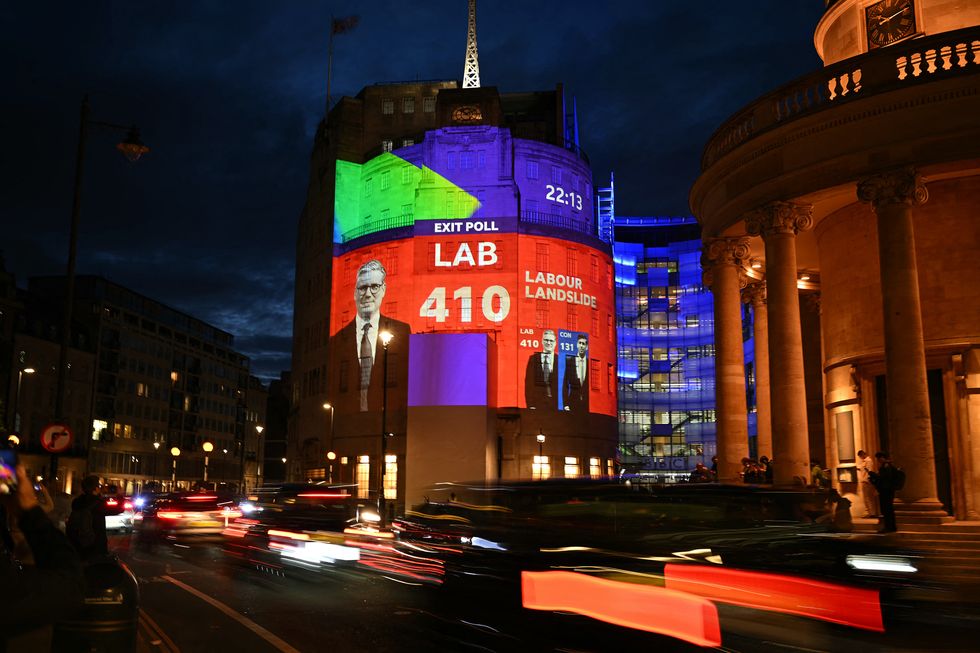 The exit poll showed a lead for Labour in the July general election, which may have put off some voters from casting their ballots
The exit poll showed a lead for Labour in the July general election, which may have put off some voters from casting their ballots



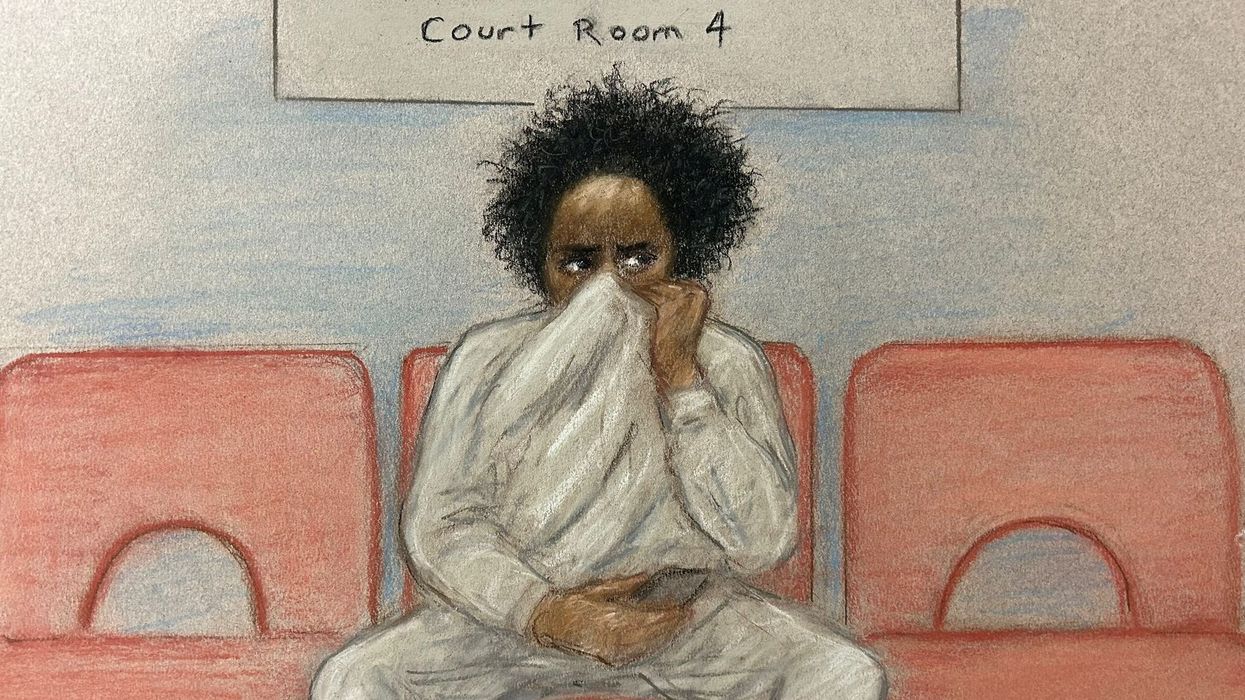







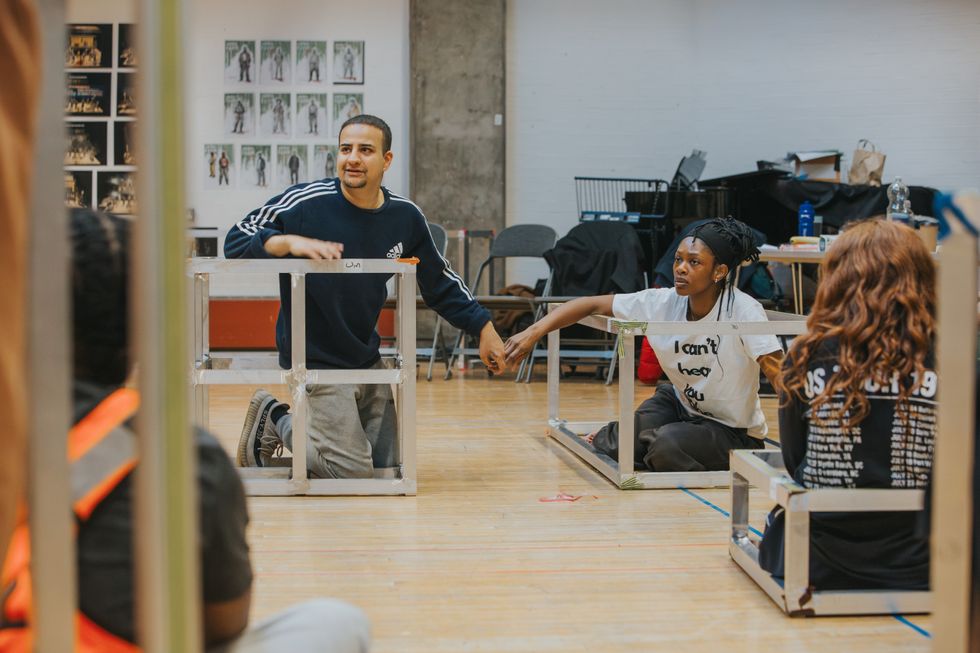 Rokey as Minty with Tianah Hodding as Clover during Animal Farm rehearsals
Rokey as Minty with Tianah Hodding as Clover during Animal Farm rehearsals

 Hadiqa Kiani
Hadiqa Kiani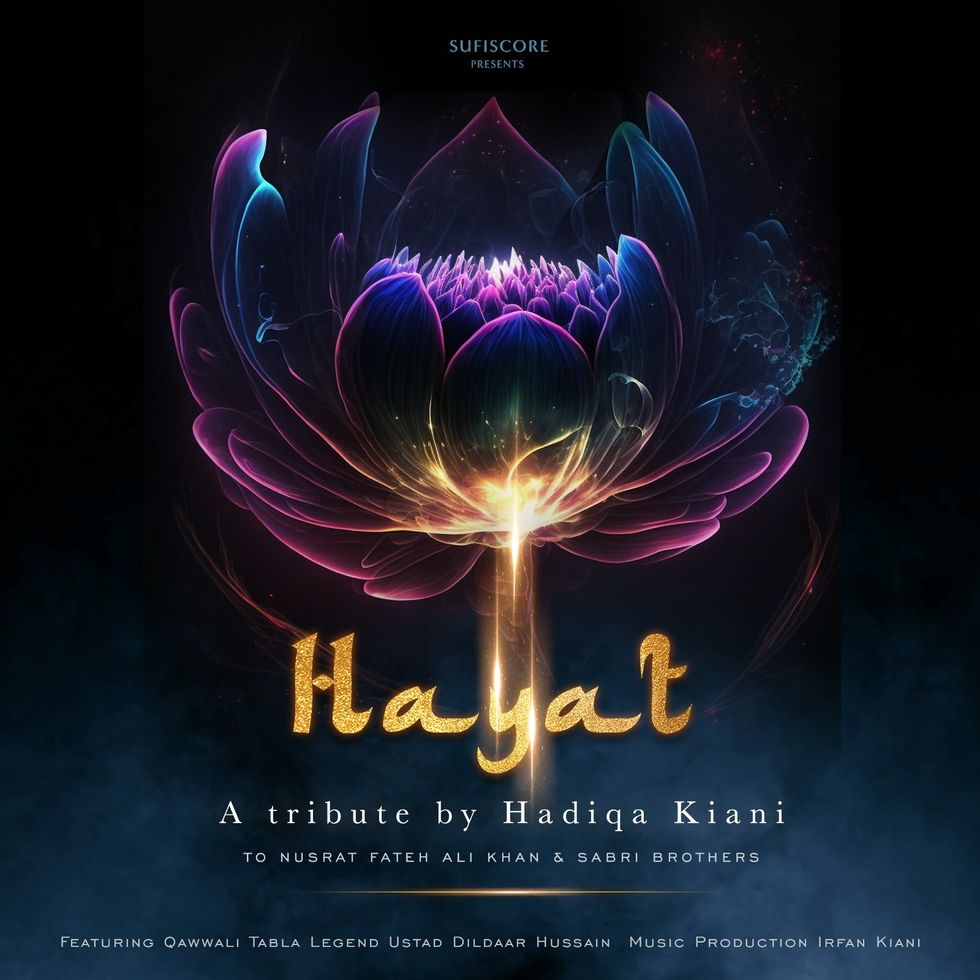 Cover of her EP
Cover of her EP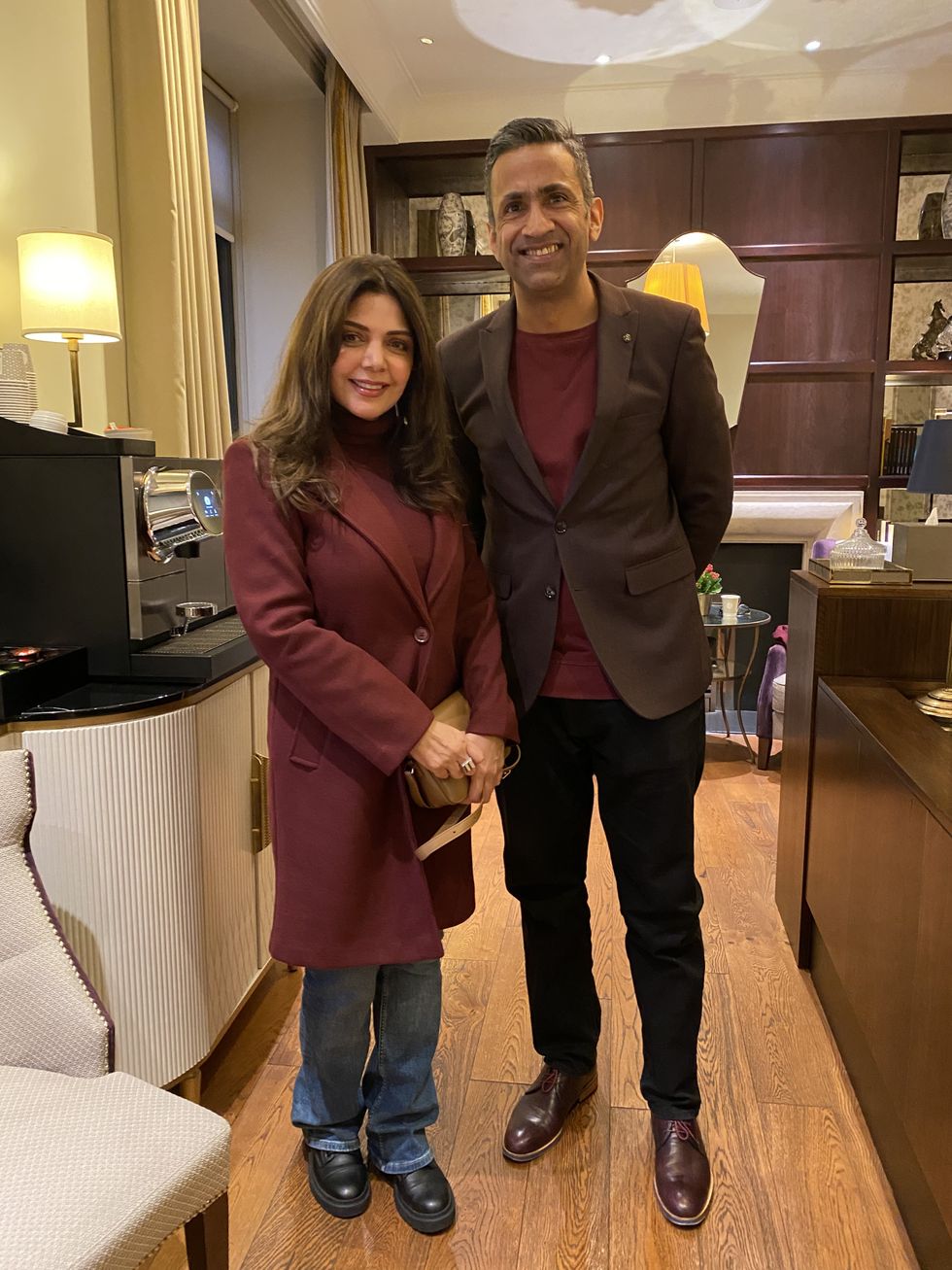 Kiani with Asjad Nazir
Kiani with Asjad Nazir